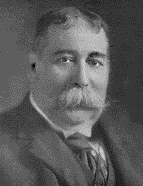

He was born in Recife, in the state of Pernambuco, to a family active in the sugar trade. His father, Luís de Oliveira Lima, was a prosperous Portuguese merchant from Porto who settled in Brazil. His mother, Maria Benedita de Miranda, was also of Portuguese descent on her paternal side, which originated from Trás-os-Montes. She was active in the Pernambuco plantation environment. He went to school in Portugal, where the family had lived since 1873. In Lisbon he studied at the Colégio dos Lazaristas [College of the Lazarists] and the Liceu Nacional [National High School] (1881-1884). There, from a very young age, he acquired an interest in historical studies, which he showed in articles published since 1882. This was followed by his enrolment in the Higher Course of Letters in Lisbon (1884-1888), which provided him with an important reference point and moulded his way of conceiving and writing history. Some of his teachers were Consiglieri Pedroso, Jaime Moniz, Vasconcelos Abreu, Adolfo Coelho, Pinheiro Chagas, Souza Lobo, and Teófilo Braga. As well as cosmopolitan illustration trips to England and France in his youth, his professional activity led him to live in several countries. These experiences originated works reflecting on history, international politics, and travelling. Even though he didn't keep practising religion—and rather ironically recalled certain aspects of his religious upbringing—he acquired throughout his education a positive appreciation of Catholicism in its moralising and civilising aspects, which were very important for his interpretation of history.
In 1890 he began his diplomatic career at the Brazilian Legation in Lisbon, where he held the post of secretary. In successive appointments and travelling in the service of Itamaraty, he served in the legations of Berlin, Washington, London, Tokyo, Caracas, Brussels, and Stockholm, and became Minister Plenipotentiary of Brazil. After retiring from the diplomatic service in 1913, he settled briefly in London, from where he moved to Brazil, pressed by his pro-German stance during the First World War. His last years were spent in the United States, where he set up and ran his private library, which he donated to the Catholic University of America in Washington. Besides his book collections, of which the Brasiliana stands out, his private archive can also be found at this university.
This work is financed by national funds through FCT - Foundation for Science and Technology, I.P, in the scope of the projects UIDB/04311/2020 and UIDP/04311/2020.
